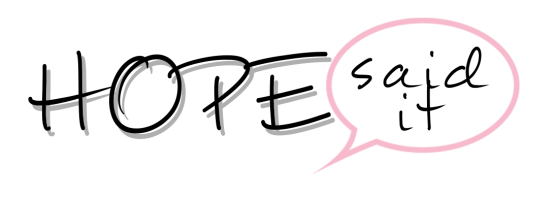 I was idly scrolling through social media last week and stopped on a quote that resonated with me, especially since I feel like three people trapped in one body at times.
I was idly scrolling through social media last week and stopped on a quote that resonated with me, especially since I feel like three people trapped in one body at times. ![]()
“I act different around different people. I’m not fake. I just have my own comfort zone. That’s why I can only be completely myself when I’m with people I’m comfortable with.”
Deep…
Well, not really; but it did have me thinking about the different ways I’m forced to act in different crowds.
Ahhh… the practice of code switching. Never heard of it? It’s when a person alternates between two or more languages, dialects or styles in conversation. ![]()
I navigate through a few worlds, so code switching is something I do without even thinking about it. For example, here’s a sample conversation between my sister and I:
*Phone rings* ![]()
“Hi. This is Hope.”
“Hope? Is that you? Trynna sound all professional and all.”
*Loud cackle* “Giirrrllll… I didn’t know what number this was. What’s up with you?”
“Just got off work. About to go to this church event. Nothing new over here.”
*Sings* “HALLELUJAH! Won’t He do it?”
“Doing the most as always. Anyways, I didn’t want anything. Just seeing what’s going on with you.”
*In Nigerian accent* “Tank you-ooh! I appreciate. You know I don’t have time for wahala or any kind ting like dat.
“Of course… bye, girl.”
Now, let’s unpack. ![]()
I started in a more professional tone, morphed into the girl down the block, switched to Mrs. Igbo Kwenu and then boomeranged back into the girl down the next block.
This is what I go through every day, multiple times a day. ![]()
Is it because I’m fake? Not at all. I just have so many points of references and cultural influences that it all spouts out of me at different times. And given the situation, it may act as a survival trait.
Just trying to assimilate. Don’t mind me, folks! ![]()
Let’s be clear, though. Code switching to me means subconsciously emphasizing a culture that is already a part of you depending on the environment. It is not patronizing and stereotyping a certain group of people for cool points.
For example, I have some staple words that the east coast won’t let me get rid of, like how I pronounce tournament (TOUR-na-ment not TER-na-mint)—which is obviously the correct way to say it given the spelling. ![]() But I find myself sometimes incorporating bits and pieces of my environment to better relate to people.
But I find myself sometimes incorporating bits and pieces of my environment to better relate to people.
Are you African? Hello, pidgin English. ![]()
Are you trying to talk more professional? Well then, per my previous email, say no more. Two can play that game. Please advise. ![]()
If you’re casual, my chiiiild and listennn are bound to come out. ![]()
And if you’re a different culture, I’ll try to bridge the gap somehow by finding a phrase or gesture that we can connect with. It’s never in a mocking way, though. It’s quite natural, and I don’t lose my personality while doing it.
As Trevor Noah said,
“I change my tone, I change my accent slightly. It’s a seamless transition that I do without even thinking, like a chameleon. I don’t think that I’m doing it, I just do it.”
When you’re not being yourself with it or trying too hard, you have crossed the code-switching boundary. ![]()
You know the accent that I can’t seem to embody although it absolutely is my environment? The southern one. I can’t be serious and talk in that twang. I’d sound like a caricature.
But I will say that back in school, I would stay jamming Chamillionaire. ![]()
So although “mayne, hold up” and “grippin’ the grain” never made it into my vocabulary, I can appreciate the references and include it in my title as a nod to all those who stay twangin’ and slangin’.
See how stupid I sounded? ![]()
Anywho, surely I can’t be the only one who code switches. What environments cause you to switch it up?
I’ll discuss more in this week’s podcast. Chamilitary, mayne! (If you know, you know.) ![]()


Leave a Reply